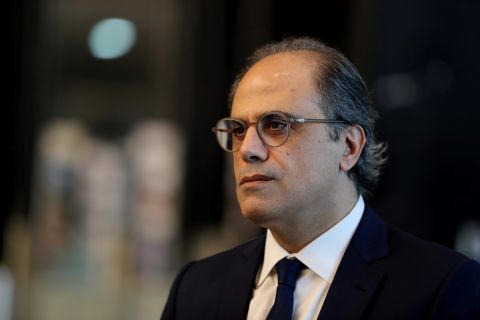Banking and Currency
Foreign Currency
Trade barriers and obstacles are minimal in Lebanon. Foreigners may invest freely in many industries and sectors. Lebanese nationals are allowed to quote prices or to agree to pay in foreign currencies. In general, there are no foreign exchange restrictions, and Lebanese nationals are free to transfer abroad any amount they want in any currency. It is notable that this freedom regarding foreign currency does not apply to certain areas, including commercial agency agreements.
Banking
Improving economic and financial conditions have led to more favorable monetary and banking activity; the consolidated balance sheets of commercial banks and customer deposits have increased considerably; and bank deposits are being de-dollarized. The exchange rate for the Lebanese Pound remains stable and the Lebanese Pound deposits carry high yields. The Central Bank of Lebanon (CBL) and many commercial banks (representing over 80 percent of Lebanon's banking activity) joined the SWIFT (Society For World Interbank Financial Transfer) network. Monetary authorities are working on developing financial markets and instruments in order to channel savings into productive sectors.
Banking secrecy was introduced in Lebanon to attract capital from other countries in the region. The secrecy laws made banking Lebanon's major economic sector and the one that most successfully withstood the Civil War. Banking secrecy, within limits of public policy, is absolute. It applies to banks, bank personnel, financial companies and client transactions. Violation of banking secrecy triggers criminal and civil liability. The Bank Secrecy Law of September 3, 1956 allows banks to open secret bank accounts where the account holder is known only to the manager. Such accounts may be referred to by a number only. No account is to be divulged to third parties, including legal authorities, and no seizure or attachment can be made without written consent of the account holder.
Banks in Lebanon have generally been performing well, and their profitability is among the highest in the Middle East. However, a large percentage of their income is generated from their heavy investment in Lebanese Treasury bills. At the end of 1998, T-Bills accounted for 35 percent of the total banking sector deposits, which was were equivalent to approximately four times banks' capital and reserves.
Intellectual Property
Lebanon is a signatory to the Paris Convention (London text), the Madrid Agreement for the Repression of False or Deceptive Indications on Goods (London text) and the Nice Agreement for the Classification of Goods and Services.
Violation of intellectual rights, however, remains a serious problem in Lebanon, especially in the areas of unauthorized copying of imported books, videotapes, cassettes and computer software. The government does a poor job of enforcing the law, and protection must be sought in the courts.
Patents
Patents are granted for fifteen years from the date of filing. A patent application should be filed before the invention has been used or published in Lebanon or abroad. Applications are not examined as to novelty, and there are no opposition provisions. Pharmaceutical formulas or compounds are not patentable.
A patent may be declared void unless the invention has been worked in Lebanon within two years from the date of grant, three years for nationals of convention countries. There is no provision regarding the grant of a compulsory license in the absence of working. To be effective, assignments must be registered with the Patent Office.
Trademarks
Trademark laws in Lebanon are old and rudimentary. The laws date from the beginning of the century and have not been updated to take into account economic developments and changes.
A trademark application can include goods in any number of classes. An application for the registration of a trademark is examined as to whether it offends public order and morals or represents natural or foreign decoration. If the application is accepted, a certificate of registration will be issued and is effected by publication in the Official Gazette. There are no opposition provisions, but any interested party may bring forward action for cancellation at any time during the term of protection on grounds such as lack of distinctiveness and improper registration.
A trademark is valid for fifteen years from the date of filing and is renewable indefinitely for similar periods. Assignment of a trademark must be recorded with the Trademark Office in order to be effective against third parties. Assignment may be with or without a business concern. Use of a trademark is not compulsory in order to file an application for registration or to maintain registration.
Infringement of the trademark laws is punishable by fine and imprisonment. Civil remedies are also available in the form of injunctions and damage awards. In the case of trademark imitation, the courts look for a general resemblance from the consumer point of view in determining whether the trademark is violating a protected mark.
Designs and Industrial Models
Designs and industrial models are may be registered for an initial term of five years from the date of filing. Registration may be extended as long as twenty-five years. Designs and industrial models should be distinguishable from those previously known. Advertising prior to filing applications, even by way of sale of the relevant products, does not preclude registration. There are no provisions for opposition to the registration of designs and industrial models. Assignment of designs and industrial models is allowed. Working of designs and industrial models is not required, and compulsory licensing is not applicable. Damaging a validly registered and published design or industrial model knowingly is punishable by fine.
Taxation
Income tax in Lebanon is levied on all persons or entities, whether or not residing in Lebanon, on income or profits derived in Lebanon. Income tax applies to income or profits derived from trade, commerce, industry and vocational activities. Profit consists of the gross taxable income after deduction of expenses and charges necessary for the carrying out of the trade, industry or business. The corporate income tax was raised from 10 to 15 percent recently. The individual marginal tax rates range between 2 percent to 28 percent. Bodies such as hospitals, schools, cooperative societies and trade unions are entitled to tax exemption. Also, there are special exemptions for agricultural and industrial activities as well as special tax rates for industries located outside of Beirut. Special rules apply to foreign companies that hail from countries with which Lebanese taxpayers enjoy reciprocal treatment.
Trade and Investment
Barriers to Trade and Investment
Lebanon is a country of free trade. There are certain goods, however, such as computer hardware and software, and firearms and munitions that require an import license. Lebanon adheres to the Arab League boycott of Israel and therefore, the import of goods from Israel is officially prohibited, although this ban is not fully enforced.
Customs
Lebanon levies most customs duties on an ad valorem basis, the average being 25 percent calculated on the CIF value of the goods converted to local currency by reference to the official dollar rate. Special low rates apply to certain imports from member countries of the Arab League, and many agricultural products are exempt from customs duties. Importation of a few specified commodities requires an import license that must be obtained prior to shipment. Free zones offering facilities for re-packaging and processing merchandise, assembling and manufacturing are located in the Beirut Port and the Tripoli Port.
Work Permits
To reside and work in Lebanon, a foreigner is required to have a work permit issued by the Ministry of Social Affairs and a residence permit issued by the Ministry of Interior. In addition, foreign nationals that wish to carry on business in Lebanon must have a commercial register. Broadly speaking, work permits are granted to persons having skills not readily found in Lebanon and to management personnel (usually up to three people on the management staff of foreign firms).
Environmental Law
Lebanon entered into a number of international environmental agreements including the Convention concerning the Protection of Workers against Ionizing Radiations (Geneva, 1960); the Agreement for the Establishment of the General Fisheries Council for the Mediterranean (Rome, 1949); the Convention for the Protection of the Mediterranean Sea against Pollution (Barcelona, 1976); the Outer Space Treaty and related instruments (1967); and Annex 16 on Environmental Protection to the 1944 Chicago Convention on International
Civil Aviation.
© 2000 Mena Report (www.menareport.com)










